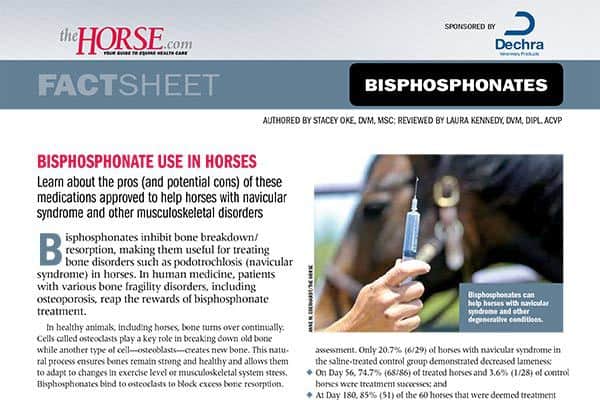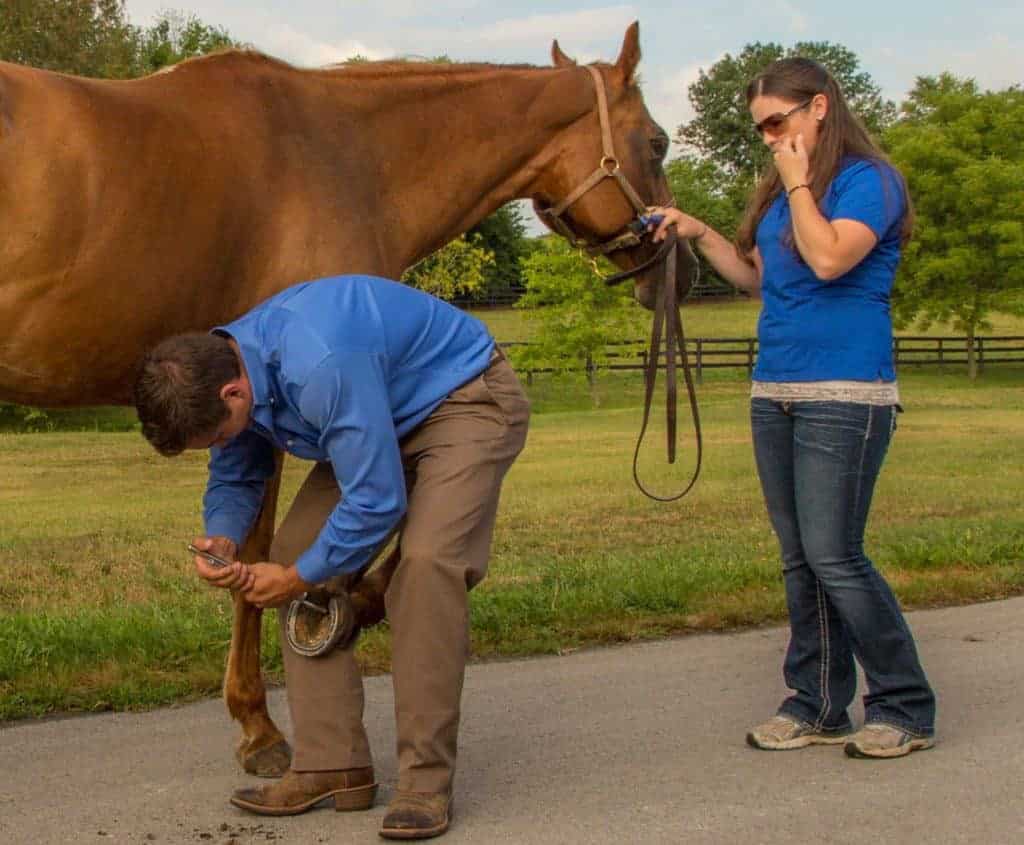
Caring for Horses Over 30
Aged horses require the same, if not higher, level of care as their younger counterparts. Learn about the unique needs of old horses, and meet five over-30 horses with age-related ailments.

Aged horses require the same, if not higher, level of care as their younger counterparts. Learn about the unique needs of old horses, and meet five over-30 horses with age-related ailments.

Researchers found that horses 25 years and older are more likely to suffer chronic laminitis even if they aren’t showing obvious clinical signs of disease.

How would you react if your horse stepped on a nail? One practitioner outlines the steps you should take.

Quarter cracks form in response to various hoof imbalances and often require a multimodal approach to resolve.

Owning a horse over his lifetime can be rewarding, but you need to be prepared for specific costs related to his care. Learn about senior horse research studies and what veterinarians say you should watch for as your horse ages.

Lame horse? Advanced diagnostic and management strategies for navicular syndrome have improved long-term outcomes.

By cutting the DDFT, veterinarians can stop one of the forces that pulls on the coffin bone during laminitis.

A review of research into laminitic pain in horses found veterinarians rely on a multimodal approach for pain management.

Learn about the pros (and potential cons) of these medications approved to help horses with navicular syndrome and other musculoskeletal disorders in this free fact sheet.

Laminitic horses try to keep off their painful toes as much as possible. But as a new biomechanics study shows, they can’t—at least not all the time.

A journeyman farrier shares his insight into fungal foot infections that can compromise hoof health and cause lameness.

Dr. Amanda Adams of the University of Kentucky, in Lexington, describes her senior horse research, which focuses on EMS, PPID, and immune system health.

British researchers reviewed more than 150 equine microbiome studies. From colic to laminitis to pregnancy, here’s what they found.

The horse’s frog is a highly adaptable structure that’s crucial to hoof health. Here’s what you need to know.

Non-steroidal anti-inflammatory drugs serve an important role in managing equine pain and inflammation, but sometimes they can do more harm than good.

Find out what hoof problems you can safely manage yourself and when to call in your farrier and/or veterinarian.
Stay on top of the most recent Horse Health news with
"*" indicates required fields